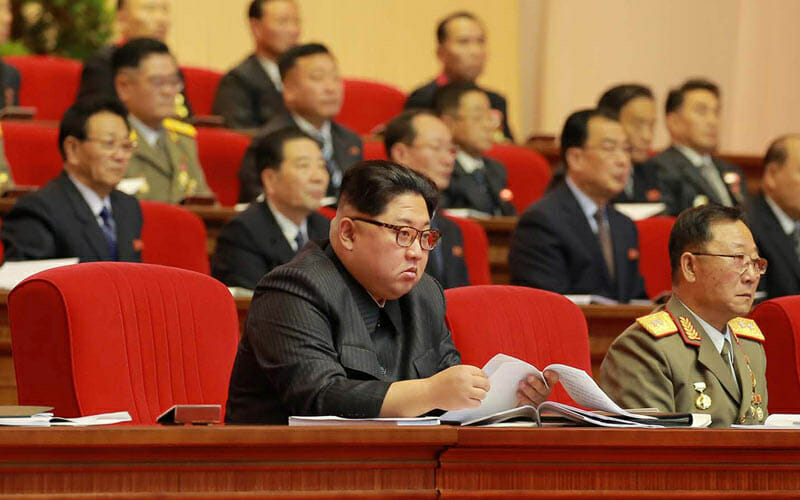
Deterrence: Less Risky, More Effective
Despite our past deterrence policies, North Korea has likely developed the capability to strike the continental United States with a nuclear weapon. What should we do? Some advocate a “bloody their nose” preventive strike against North Korea. Others say we should accept a nuclear North Korea. Yet there is a solution that is less risky and more effective: Deterrence.
North Korea and its leader, Kim Jong-Un, can be deterred from using nuclear weapons. To deter Kim, the United States must focus on clearly and consistently communicating to North Korea that we will defend ourselves and our allies against North Korean aggression. To communicate this effectively, the U.S. must take steps diplomatically, economically, and militarily.
Diplomatically, the United States should agree to discussions with North Korea without the precondition of denuclearization, as Vice President Pence has recently suggested. I am not implying the U.S. should accept an agreement that allows North Korea to keep its nuclear weapons. Instead, the focus should be on communication. The two countries should meet and discuss ways to avoid a miscalculation that could have terrible consequences. Talks will be more effective than missile tests, “fire and fury” rhetoric, or tweets comparing the size of nuclear buttons.
Economically, the United States and the international community should maintain and update sanctions. Economic sanctions punish the North Korean regime for developing nuclear weapons, reinforce the international norm against nuclear proliferation, and constrain its ability to improve nuclear capabilities. Additionally, potential relief from sanctions remains one of the best negotiating tools for the United States.
Militarily, the United States must defend allies against North Korean aggression or coercion. This requires both strong conventional and nuclear forces. The U.S. must work with South Korea to maintain its conventional military advantage over North Korea, to reduce the chance that North Korea would try to reunify the peninsula by force. The U.S. must also limit North Korea’s ability to use nuclear forces to inflict damage. Specifically, the U.S. must maintain the capability to track North Korean nuclear forces, strike nuclear-armed delivery vehicles before they can launch, and intercept nuclear missiles once they have been launched.
Some say Kim Jong-Un is irrational. They say he cannot be deterred. Yet Kim is not a “crazy, fat kid.” He understands that the United States is more powerful than North Korea. He fears that power. For this reason, the U.S. does not need to accept a nuclear North Korea and risk the loss of key allies. Nor does the U.S. need to launch a preventive strike and risk a retaliation that endangers the lives of millions. Instead, the U.S. can deter North Korea. Kim Jong-Un understands and fears our military capability to destroy his regime.
Deterrence offers the best possible solution to a problem that has spanned numerous presidencies. Through deterrence, the United States can promote peace, not war. Through deterrence, the United States can protect lives, not endanger them. Deterrence offers the best option for a safer future.

